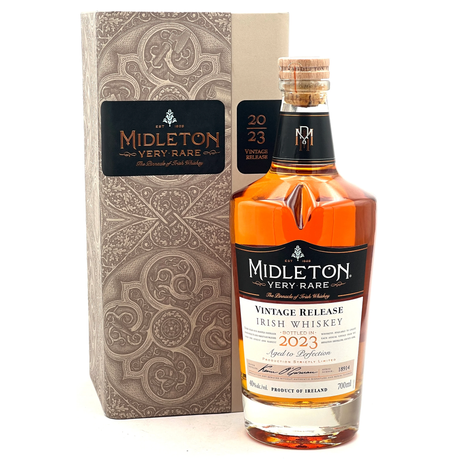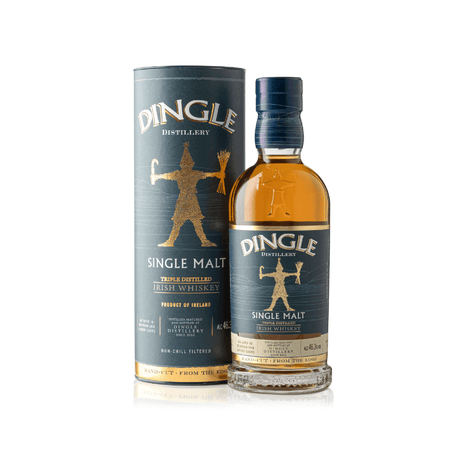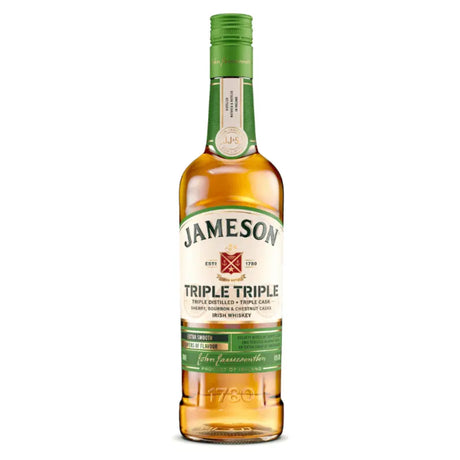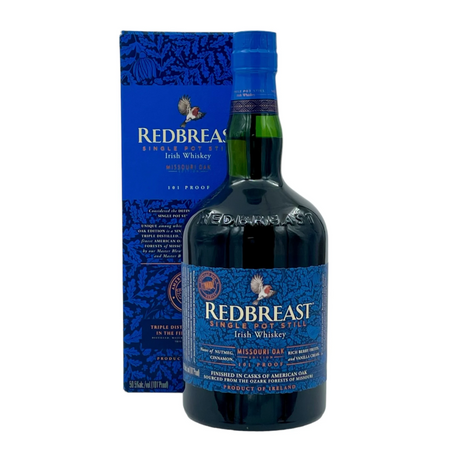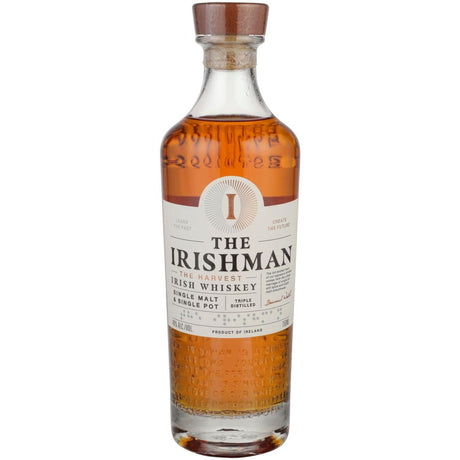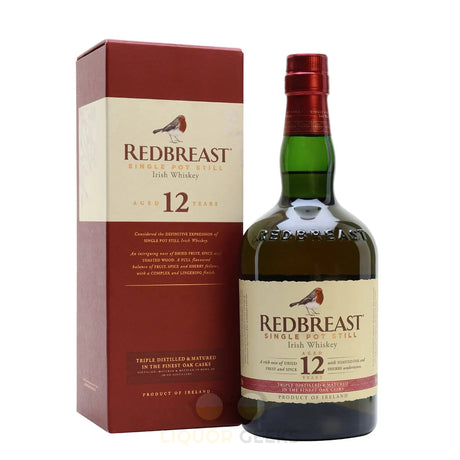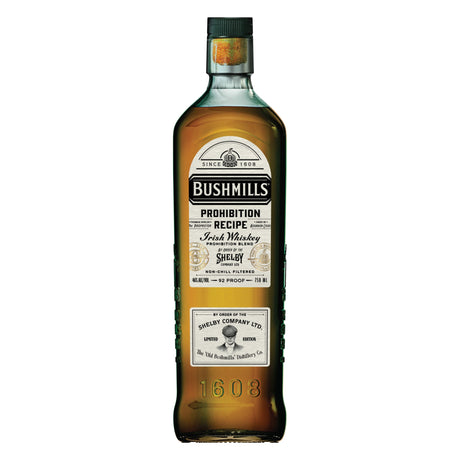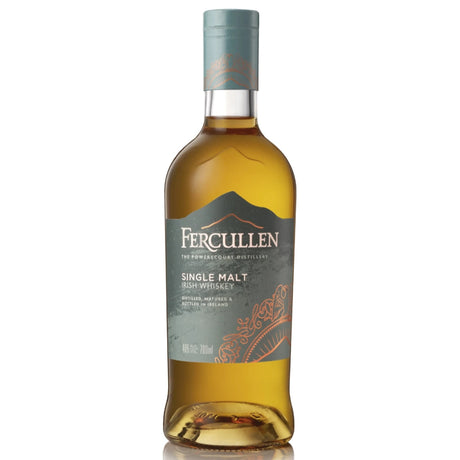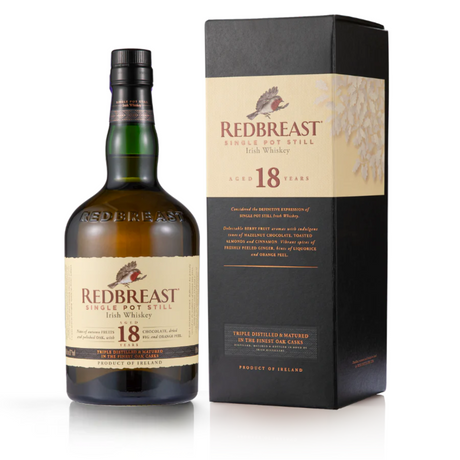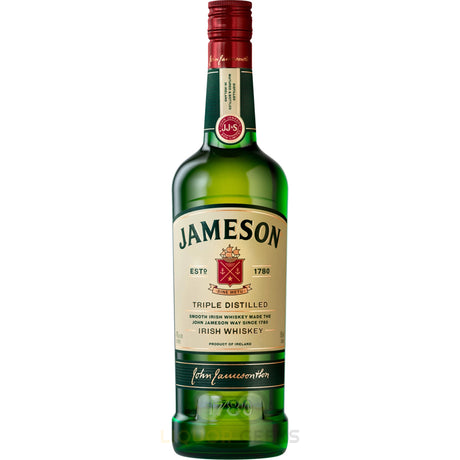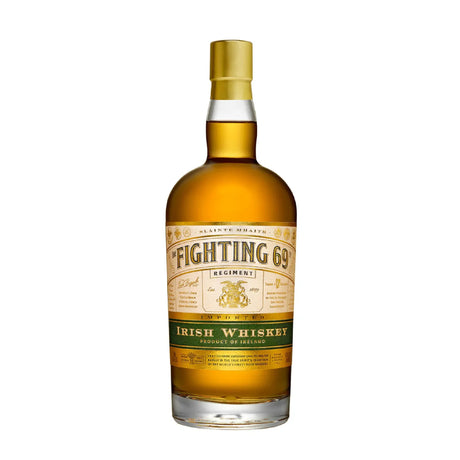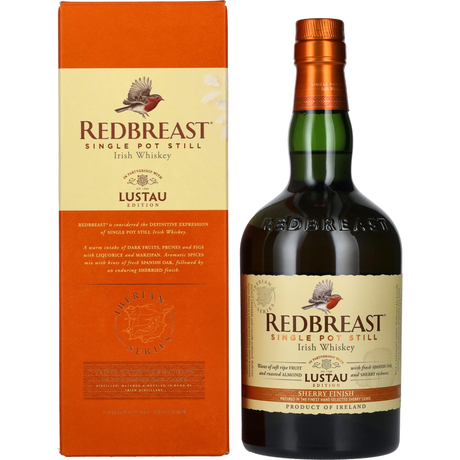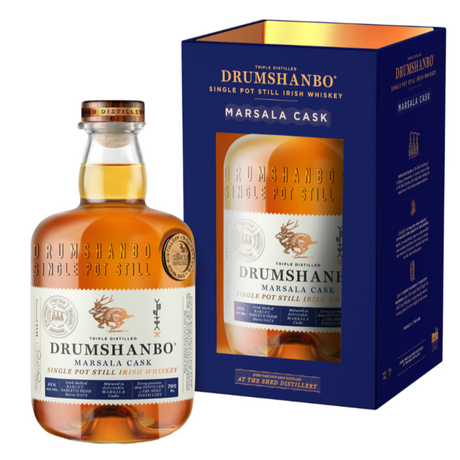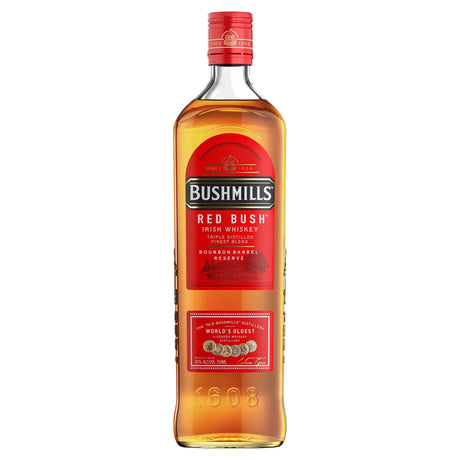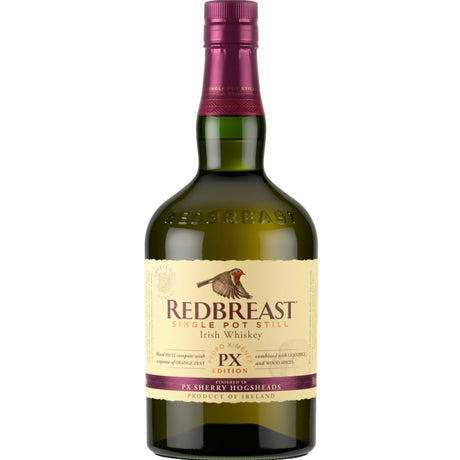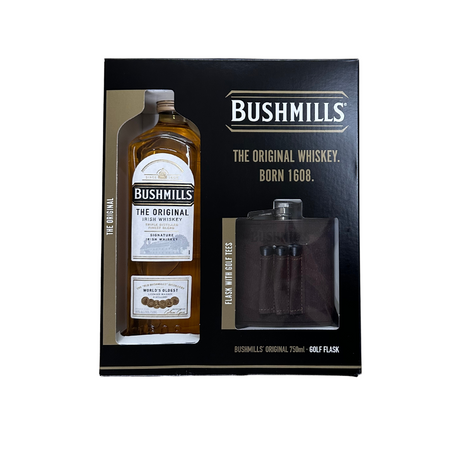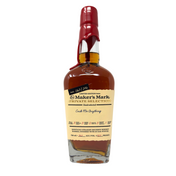Buy Premium Irish Whiskey Online
“From Ireland’s finest distilleries to your glass—Get premium Irish whiskey delivered straight to your doorstep.”
About Irish Whiskey
Taste the authentic flavor of Ireland in every sip with Liquor Geeks' exclusive Irish whiskey collection. Our assortment features a range of variations, including the Single Pot Still, Single Malt, Blended Whiskeys, and more, ensuring there’s something for every taste. From the complex richness of “The Irishman” to the bold notes of “Teeling,”—our collection showcases the best of Ireland's celebrated whiskey brands. With bottles sized just right—700ml to 750ml—it's the perfect way to enjoy a taste of Ireland—alone or with friends. Discover your new favorite whiskey today by exploring our collection!
Why is Irish Whiskey so Popular?
Irish whiskey has seen remarkable growth since 2008. Sales in 2008 were at 4.4 million 9-liter cases, and by 2018, this figure rose to 10.7 million cases. By 2021, annual sales had reached 14 million cases (168 million bottles). Looking ahead, sales are projected to surpass 24 million cases by 2030, further cementing Irish whiskey’s status as a global favorite.
Wondering why Irish whiskey has become the toast of the town? Let’s explore the key reasons behind its rise as a global favorite:
1. Triple Distillation Process
Irish whiskey is traditionally distilled three times, unlike Scotch whisky, which is typically distilled twice. This extra step results in a smoother, lighter spirit with fewer harsh edges. The triple distillation helps refine the flavors and remove impurities, producing a more desirable whiskey that appeals to a wider audience. Its gentle character makes it a great choice for those who find Scotch too smoky or intense, offering a more versatile and easy-drinking experience.
2. Quality Regulations
The popularity of Irish whiskey can be partly attributed to its strict quality regulations, which ensure that every bottle maintains the highest standards of authenticity and craftsmanship. Governed by both Irish law and European Union regulations, including the Irish Whiskey Act of 1980 and Regulation (EC) No 110/2008, these guidelines guarantee a consistent product that lives up to its heritage. Key requirements include:
1. Geographical Origin: Irish whiskey must be produced on the island of Ireland, encompassing both the Republic of Ireland and Northern Ireland.
2. Ingredients: It’s made from a mash of malted cereals (with or without other grains), saccharified by the diastase of malt and fermented by yeast. Only water and natural enzymes are used.
3. Distillation: The whiskey must be distilled at less than 94.8% ABV, ensuring it retains the flavors from the raw ingredients. Additives are restricted to water and caramel coloring (E150a).
4. Aging: The spirit must mature in wooden casks, like oak barrels, for at least three years, with casks not exceeding 700 liters in capacity.
5. Alcohol Content: The final product must be bottled at a minimum of 40% ABV.
These regulations, designed to preserve the tradition and quality of Irish whiskey, play a major role in its growing global appeal.
3. Diverse Flavor Profiles
Unlike Scotch, which predominantly uses oak for aging, Irish whiskey can be aged in various types of wood. This results in unique flavors, making it an exciting choice for consumers looking for something different. Brands are exploring aging in casks like IPA, stout, and even Madeira and Burgundy, which adds to its variety. Such innovation keeps Irish whiskey fresh and dynamic, attracting consumers who seek a new experience with every bottle.
Our Collection of Irish Whiskey
Now that you know why Irish whiskey's popularity is on the rise, we’re proud to offer a carefully curated collection to meet the growing demand. Let’s explore all the premium category options we have for you:
1. Blended Irish Whiskey
Blended Irish Whiskey is a carefully crafted combination of single malt whiskeys sourced from either the same distillery or multiple distilleries. Notable options in this category include West Cork, Midleton, Writers Tears, Lost Irish, etc.
2. Single Malt Irish Whiskey
Single Malt Irish Whiskey is produced from a fermented mash of 100% malted barley distilled in a single distillery. Using only malted barley and traditional pot still distillation results in a rich, smooth spirit with complex flavors.
3. Single Pot Still Irish Whiskey
Single Pot Still Irish Whiskey combines malted and unmalted barley and distilled in copper pot stills, which gives it a rich, full-bodied flavor. Oak casks are used to mature it after distillation, which adds complexity and depth.
4. Single Grain Irish Whiskey
This Irish whiskey is produced in Ireland using a mash of malted (up to 30%) and unmalted grains. Distilled in a continuous column still, this process ensures efficient production and results in higher alcohol content compared to the traditional pot still technique.
5. Cask Strength Irish Whiskey
Cask Strength Irish Whiskey is bottled directly from the cask without dilution. Since no water is added, it retains the full strength and characteristics of the barrel, offering a richer, more powerful, and unaltered taste.
6. Peated Single Malt Irish Whiskey
Made exclusively of malted barley at a single distillery, this whiskey gains its signature earthy and smoky character from the use of peat during the malting process.
7. Irish Whiskey (general)
It is a distilled alcoholic beverage produced on the island of Ireland—primarily from malted and unmalted barley. Whiskey must be aged for a minimum of three years in wooden casks to qualify as Irish whiskey.
8. Rye Whiskey
Rye Irish Whiskey is a variation of traditional Irish whiskey that uses rye as a primary ingredient in its mash bill, alongside the more common malted and unmalted barley.
9. Double Oak Finish Irish Whiskey
A premium Irish whiskey that undergoes a two-stage aging process in different types of oak barrels. Initially aged in traditional oak casks, it is then transferred to a second type of oak barrel, such as sherry or wine casks, for additional maturation.
These are some of our top Irish whiskey categories, featuring products from reputable brands like Jameson, Connemara, Irish Mist, Writers Tears, and more.
The Art of Irish Whiskey Tasting
Knowing the right way to taste Irish whiskey is essential for truly enjoying its unique flavors. Let’s share some simple tasting tips and food pairings that perfectly complement each whiskey’s distinct taste.
Tips for Tasting Irish Whiskey Like a Pro
1. Start by selecting the right glass! For the best tasting experience, use a tulip-shaped glass or whiskey tumbler. The shape allows the whiskey's aromas to concentrate, enhancing your tasting experience.
2. After that, hold the whiskey up to the light and observe its color. The shade can provide insights into the whiskey's age and aging process, with Irish whiskey often ranging from pale gold to rich amber.
3. Before tasting, gently swirl the whiskey and inhale its aromas. Irish whiskey often has a range of fruity, floral, and malty notes that are best appreciated before tasting.
4. Let the whiskey coat your palate, and notice the initial flavors. Irish whiskeys are known for being smooth and lighter, with hints of honey, vanilla, and fruit.
5. Consider adding a splash of water to open up the flavors, especially with cask strength or more complex Irish whiskeys. This helps release the whiskey’s subtler notes. This is totally optional.
6. Taste the Irish whiskey in layers, particularly single pot still or single malt, which often have multiple flavor layers. For a full experience, pay attention to the initial taste, mid-palate, and lingering finish.
7. After swallowing, exhale through your nose to experience the finish. This stage reveals additional nuances, such as lingering sweetness, spice, or woodiness, giving you the full depth of the whiskey’s profile.
Food Pairings with Irish Whiskey
Irish whiskey pairs beautifully with a variety of foods, enhancing flavors and providing a delightful culinary experience. Here are some ideal pairings:
1. Bread & Butter: Simple soda or sourdough bread complements lighter single malts, while wholemeal bread suits more mature whiskeys like Bushmills BLACK Irish Whiskey.
2. Cheese: Goat’s cheese pairs well with single malts, while mature cheddar complements bourbon-matured whiskeys. Blue cheese works excellently with sherry-finished varieties.
3. Charcuterie: Pair salami with single grains and cured beef with mature whiskeys.
4. Seafood: Shellfish, such as prawns and oysters, is delightful with lively whiskeys. Smoked fish pairs well with peated varieties.
5. Meat: Grilled meats match with peaty or spicy whiskeys, while BBQ dishes go well with sweeter blends.
6. Desserts: Dark chocolate pairs beautifully with pot still or sherry-matured whiskeys, while lighter desserts complement blends like Irish Manor.
Browse our premium Irish whiskey collection, select your favorites, and easily check out using secure payment options like PayPal, GPay, and more. Your next taste of Ireland is just a click away!
FAQs
How is Irish whiskey made, and what is its production process?
These are basically made from a mix of malted and unmalted barley, and other grains. It’s typically triple-distilled in pot or column stills, creating a smoother, lighter spirit. After distillation, it is aged in wooden casks for at least three years to develop its flavor.
What are some popular brands of Irish whiskey?
Some well-known brands include Jameson, Bushmills, Redbreast, Connemara, and Teeling Irish whiskey. These brands offer a wide range of expressions, from smooth blends to rich single malts and peated whiskeys.
What are the flavor profiles typically found in Irish whiskey?
Irish whiskey is known for its smooth, light profile, featuring notes of vanilla, honey, fruit, and oak. Some varieties, like single malt, can have deeper flavors such as caramel, nuts, and spice, while peated whiskeys introduce smoky, earthy undertones.
How can I identify a high-quality Irish whiskey?
High-quality Irish whiskey typically has a smooth, well-balanced flavor with complexity and depth. Look for whiskeys that are aged for longer periods, ideally in quality casks like oak, and avoid overly harsh or bitter notes that can signal poor distillation.
How do I choose a good Irish whiskey for a gift?
Consider the recipient's taste preferences when choosing an Irish whiskey as a gift. Once you know their preference, check our gift sets section and explore the options available to find the ideal one.
Read Less
